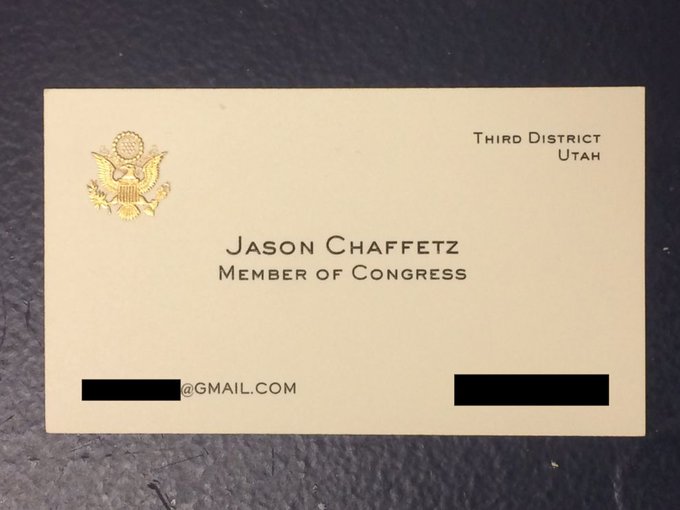In a tense hearing on Thursday, House Oversight Committee Chairman Rep. Jason Chaffetz (R-UT) grilled FBI Director James Comey about his decision to recommend against indicting Hillary Clinton over her use of a private email server while she was secretary of state. The hours-long hearing re-hashed a familiar debate over whether Clinton lied about sending classified information over her personal e-mail account, and whether she should be granted future security clearances in light of what Comey called “extremely careless” behavior.
The hearing also re-hashed another interesting fact: That Chaffetz himself uses a personal email address to conduct professional business.
We all know Jason Chaffetz would never use his personal email for work.The tidbit was brought up by Eleanor Holmes Norton, the Democratic delegate from the District of Columbia, who during the hearing noted that Chaffetz lists his personal email as his primary contact on his business cards. Chaffetz’ business cards were first reported on by ABC News last year.“No one says that’s wrong,” Holmes Norton said. “I don’t know if it’s wrong or right. Because there’s no guidance.”


No comments:
Post a Comment